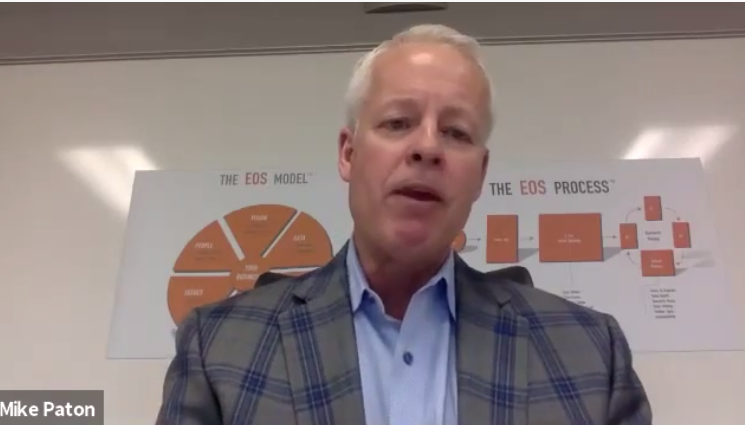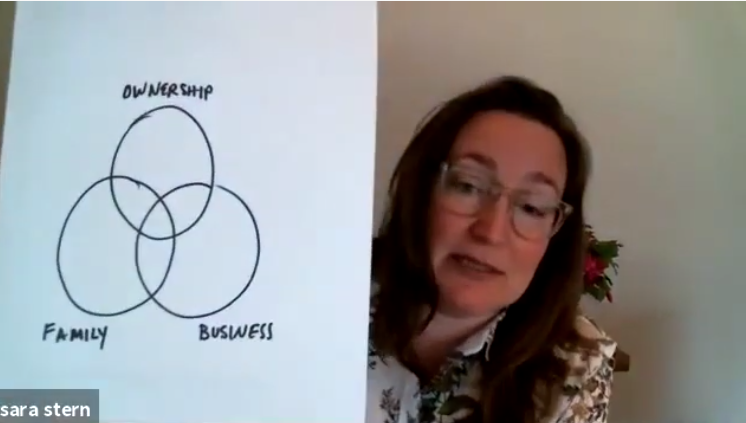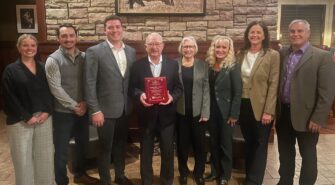Preview a ‘taste’ of family business at one-of-a-kind dinner
Recent News
Family businesses can navigate crisis, resolve conflict with this approach
Posted in Member News, PFBA | March 31, 2020
Family businesses: You are not alone.
And you can use this crisis to tap into your entrepreneurial spirit while accessing resources to help you cope both at work and home.
Those were some of the themes from a webinar held March 27 by the Prairie Family Business Association that drew dozens of participants.
“A time like this is when it’s critical that we leverage all our relationships, best practices and resources to help our family businesses sustain themselves and emerge stronger,” said Stephanie Larscheid, the association’s executive director.
“We definitely came away from that webinar with a feeling that we are all in this together and, just as importantly, with strategies that our families can start using right away.”
While the Prairie Family Business Association’s annual conference has been postponed from April to Sept. 10 and 11, the overriding theme of it has never been more timely.
So keynote speaker Mike Paton and his colleague Sara Stern made a guest appearance on the webinar to share how an Entrepreneurial Operating System, or EOS, can help family businesses through the COVID-19 crisis.
To view the full webinar, click below.
The EOS is “a system designed to help people get clear on their vision and plan, get everybody on board and execute well, meaning making decisions faster and driving more accountability for execution throughout the organization and solving problems faster and better and more permanently,” Paton said.
“And one thing a crisis does is it ratchets up the level of intensity around all of those things.”

Crisis is “almost a synonym for entrepreneurship,” he continued.
“The people who own and run family businesses are used to being in crisis … and we’ve had to lead. We’ve had to make decisions without all the facts at hand. We know what it feels like to have three options and none of them are good. It’s why I believe entrepreneurs are key to navigating us out of this crisis.”
How to begin
Businesses can find themselves in opposite situations during this pandemic, Paton said. Some have experienced a huge pause, and others have seen a massive uptick. Both bring challenges that he said can be navigated with the following approaches:
“Not losing sight of your core, focusing on people, focusing on cash or liquidity or survival, and speed and pace. Those are the things we think are essential right now.”
The EOS calls on businesses to document their vision and plan in a two-page document. That includes setting a 10-year target or a core target.
“So what we’re doing with our teams who are tempted to pivot everything about their business and change it up and go chasing revenue wherever they can find it is we go back to core values, core focus and 10-year target or core target,” Paton said. “Is there opportunity to capitalize inside your core? That would be way better than throwing it all out the window and starting from scratch.”
During a crisis, rely on your moral compass, he added.
“My clients are all focusing on their best customers, their longtime best employees and most-trusted vendors and emphasizing the power of personal relationships and true caring.”
The truth is businesses will have tough decisions to make, he said. They should be projecting weekly or month cash flow based on the current facts with help from professionals and know that everything is happening faster. Some have created a daily “war room” meeting to ensure they’re staying on top of decisions that need to be made.
“Most of my clients have accelerated their meeting pace. They feel like they need to reprioritize or reshuffle the deck more often,” he said, adding:
“I want everyone to stand in calm and confidence – sort of a ‘we got this’ moment.”
Conflict is common
The COVID-19 pandemic is raising society’s collective anxiety level and also leading to a range of concerns for family businesses.
Stern suggests drawing three circles representing family, business and ownership.

“When they have a worry, when they have an issue, when they have a concern, put that in one of these circles and make sure you talk about it in the right place,” she said. “The strongest family businesses have three equally strong circles.”
If your family is finding there’s more conflict than normal, you’re not alone — it’s common in many of her clients, she added.
“Conflict is rising quickly. For the family business ones, it’s really going up.”
To solve personal issues, she recommends using the tool that is part of the EOS and discussed in the book “Traction,” describing it as “a simple tool with a huge amount of power.”
She also suggests taking three walks each day, each one at least 10 minutes long.
“One with your family … one where you’re thinking about our business and what are our core values and the things we need to solve, and one thinking about ownership. What does the ownership of this business mean. What does it mean to be an owner.”
Accessing help
There is a growing pool of resources that business owners potentially can tap. The Prairie Family Business Association brought in Jaime Wood, district director for the South Dakota office of the U.S. Small Business Administration, who briefed the businesses on new resources available to them.
A few takeaways:
- Businesses can look back as far as Jan. 31 in determining the impact the pandemic has had on them.
- In looking at how much lending might be needed, businesses should try to project out six months what their needs might be.
- The recently passed CARES Act offers new lending options to small businesses. Consult the SBA or your banker.
“It is a good idea to put this tool of extra capital in your tool kit right now even if you don’t need it right now but you’re projecting you might,” Wood said.
“Start building that relationship with the case officers, the loan processors inside of SBA. We’re here to help and support small businesses to make sure they stay operational. There’s nothing wrong with taking out some loans so they can stay in business and employees can stay employed.”
Association members also heard from Eide Bailly’s Tom Pruner, who advised them that “cash is going to be king in a situation like this.”
“You’re going to want to preserve as much as cash as possible … and the two people you’re going to need to be talking to during this time period are your accountant and your banker because they’re going to be able to help you with some of these new loan provisions, as well as the SBA.”
The Prairie Family Business Association will hold its next call about COVID-19 issues at 10 a.m. April 3. It is open to anyone and will include legal and financial advice. To register and see all the association’s COVID-19 resources, click here.



